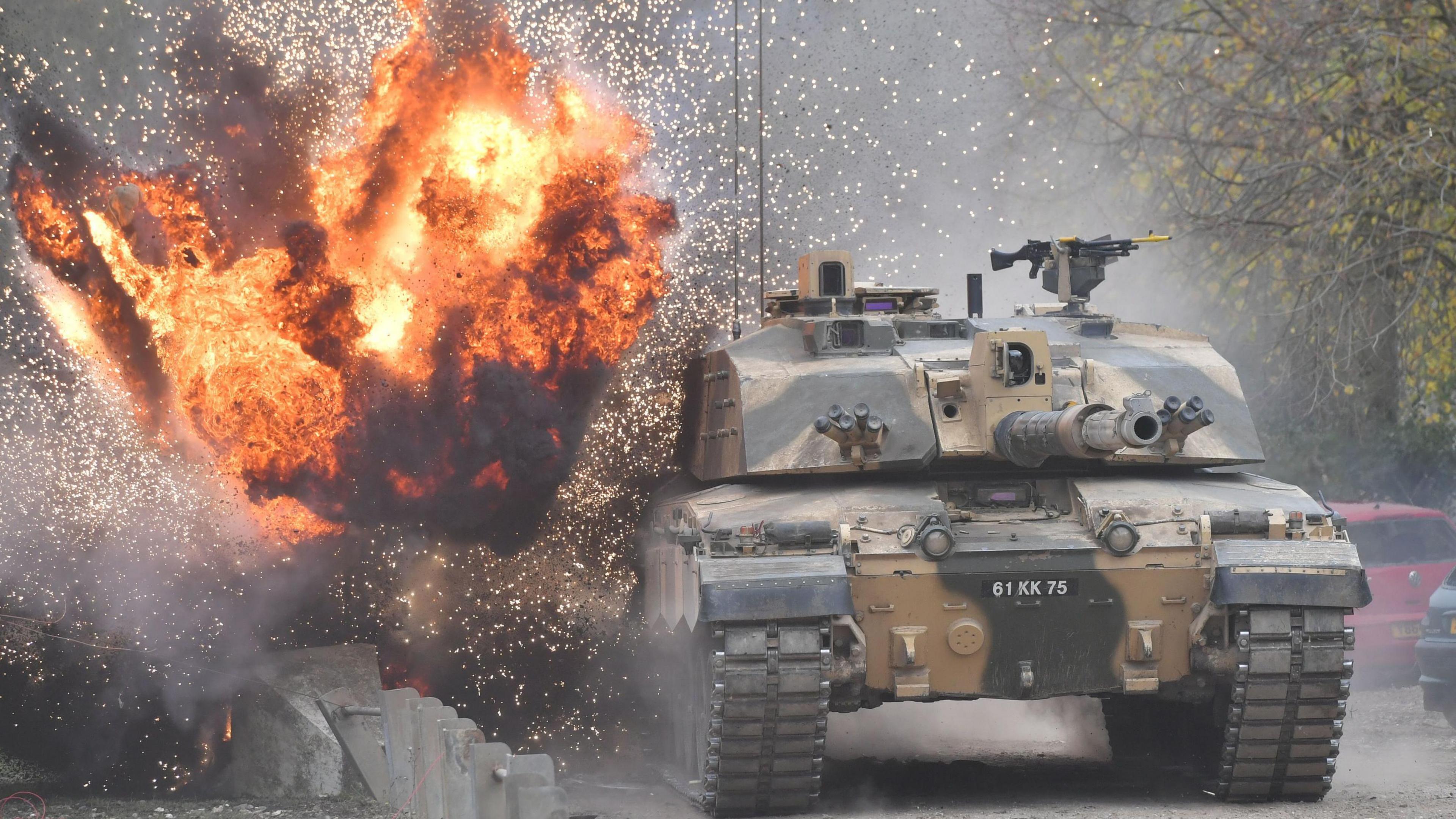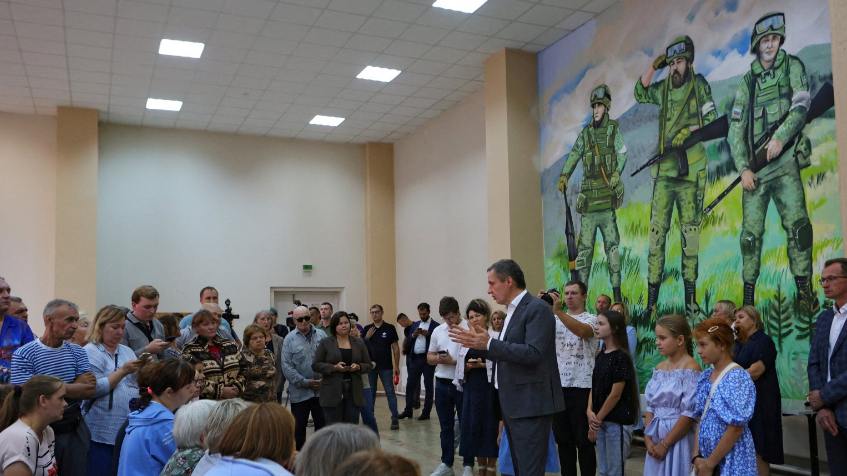UK-donated tanks used in Kyiv's Russia incursion

A Challenger 2 Main Battle tank during a demonstration in Wiltshire
- Published
UK-donated Challenger 2 tanks have been used by Ukraine as part of its surprise incursion into Russia, a UK source has confirmed.
The Ministry of Defence is not officially commenting on what specific UK weapons are being used by Ukraine.
However, following Kyiv's incursion into Russian territory, the ministry reiterated that Ukraine had "a clear right" to use UK-supplied weapons for "self-defence against Russia's illegal attacks".
"That does not preclude operations inside Russia," a spokesman added.
"We make clear during the gifting process that equipment is to be used in line with international law."
The policy means anti-tank missiles, artillery, armoured vehicles and other UK-donated weapons could be used during Ukraine's offensive.
However, there is an exception for the UK's Storm Shadow missiles which were originally supplied on the understanding they would not be fired at targets inside Russia.
The missiles are fired from aircraft but have a range of more than 150 miles, meaning Ukrainian pilots are able to stay further away from the front line.
No western country has given Kyiv the green light to use their long-range missiles to strike targets inside Russia.
During his visit to Downing Street in July, Ukrainian President Volodymyr Zelensky urged the UK to work with western allies to "remove the limits" on the use of the weapons.
He told senior ministers that giving Ukraine "long-range capability" would force Russia to "seek peace".
Defence Secretary John Healey told the BBC the UK was having "intense discussions" on the subject, but he would not go into details in public.
The UK was one of the first countries to supply Ukraine with western-made main battle tanks.
In 2023, it provided 14 Challenger 2 tanks to help Ukraine in its doomed summer offensive. One of the tanks was destroyed in the thwarted operation.
Few would have envisioned that some of these tanks would end up fighting in Russia itself.
Since Ukraine's recent advance into Russian territory, there have been sightings of western-supplied armour inside Russia, including US Bradley and Stryker armoured vehicles as well as German Marders.
None of those countries has raised objections about its equipment being used in the offensive.
In truth, few would have known Ukraine’s intentions given the secrecy surrounding this operation.
Western military experts have highlighted the success of the Ukrainian offensive for its use of what they call "combined arms manoeuvres" – using troops alongside armoured vehicles, artillery and tanks as well as electronic warfare and drones – to attack.
That was something missing from last year’s Ukrainian offensive in the south and east of the country - which was impeded by heavily-mined Russian fortifications making it difficult and dangerous to operate armour.
There may still be concerns in the West about what happens next, including that Ukraine could suffer significant losses and come back asking for more.
More importantly, some may worry about how Russia responds and the possibility of escalation.
The Kremlin has already accused the West of being behind the attack on its territory and the fact Western weapons are involved provides a basis for that charge.

Vyacheslav Gladkov, governor of the Russian Belgorod region, talks to evacuees who left their homes following the Ukrainian advance into the area
Ukraine surprised Russia and its allies when it launched its offensive into Russia's western border region of Kursk.
The amount of Russian territory seized is uncertain, with both countries making conflicting statements.
Russia has declared a state of emergency in its Kursk and Belgorod regions. Yan Furtsev, a local official with Russia's liberal opposition party Yabloko, told the BBC about 180,000 civilians in Kursk needed to be evacuated.
The operation by Kyiv appears to be aimed at diverting Russia forces away from Ukraine in order to defend its own border.
The incursion has raised questions about how Ukraine uses weapons donated by its western allies.
Speaking to BBC's Newshour programme, Latvia's Foreign Minister Baiba Braze said a "consultation among legal experts within Nato countries" had concluded that "the right to self defence also covers the right to counter-attack".
Earlier this year, David Cameron, then the UK's foreign secretary, said Ukraine "absolutely has the right to strike back at Russia".
Russian foreign ministry spokeswoman Maria Zakharova said his remarks were tantamount to admitting the West was involved in a "hybrid war" against Moscow.
The UK is one of the biggest donors of military aid to Ukraine, behind the US and Germany.